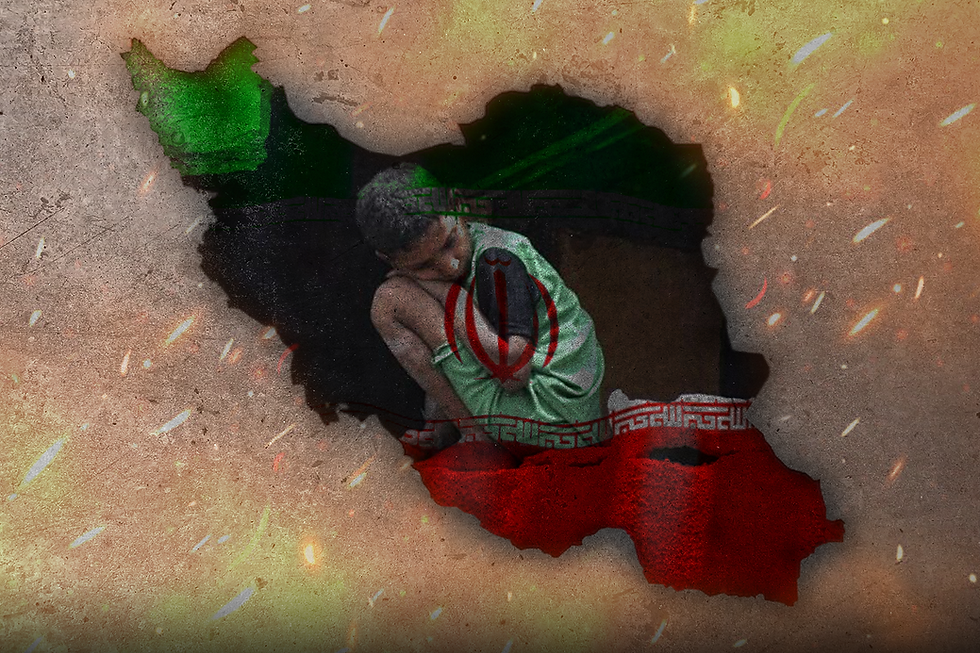Israel-Iran Conflict: When did it start raining missiles?
- The Communicator
- Aug 5, 2025
- 5 min read
Have you ever wondered how wars start? Do they stem from personal conflicts between leaders, different beliefs, simple hatred, or pure cruelty? What is this thing that makes people want to hurt others? When the bombs fire off and make a sound, do they wish they could take it back?

On June 13, 2025, the land of Iran was disturbed by Israel’s offensive launch at Iran’s capital—Tehran, specifically military bases, which led to multiple deaths of Iranian civilians, top commanders, and nuclear scientists. Some might think of this as a sudden attack, when in reality, there is a history behind this conflict.
2003
June 2003 – Nuclear Negotiation
22 years ago, the E3, an informal collaboration on foreign and security matters involving the United Kingdom, Germany, and France which operated as a practical working relationship rather than a formal institution, was established. Meaning, it's a small group of countries with shared interests cooperating, sometimes within and sometimes outside of established international organizations. The primary intention of this institution is to form a negotiation with Iran involving nuclears.
2015
July 14, 2015 – Sealed Agreement on Nuclear Deal
In 2015, Iran entered into an agreement with the E3/EU+3, officially called the Joint Comprehensive Plan of Action (JCPOA), but more commonly known as the Iran nuclear deal.
2018
Data Obtained
2018, the year when Prime Minister Benjamin Netanyahu revealed that Israel has thousands of pages of data on their hands containing Iran covering up its nuclear program before they agreed and signed a deal in 2015 with world powers. This information was confirmed by an ex-Mossad chief.
2020
November 2020 – Assasination of Iranian Top Nuclear Scientist
Mohsen Fakhrizadeh, a top nuclear scientist in Iran was shot dead in 2020. He was killed by a remote controlled machine gun in the east of Tehran, while in a car in a town called Absard. The authorities of Iran accused and blamed Israel for Fakhrizadeh’s assassination, but there was never a confirmation about the alleged involvement of Israel in this attack.
2021
February 2021 – Explosion of an Israeli-owned Cargo Ship
The Israeli-owned cargo ship, the MV Helios Ray, was struck by an explosion as it sailed from the Middle East toward Singapore. Israeli Prime Minister Benjamin Netanyahu claimed that Iran was responsible for an explosion. Iran, on the other hand, strongly rejected the accusation.
April 11, 2021 – Natanz Nuclear Facility Attacked
An underground nuclear facility in Natanz was attacked. Although Israel was widely accused of being responsible, it did not claim responsibility for the incident.
This act of sabotage severely undermines ongoing discussions about Iran's already fragile nuclear agreement, effectively dragging the hidden conflict between the two nations out into the open.
2022
May 2022 – Iran Revolutionary Officer Assassinated
A high-ranking officer in Iran's Islamic Revolutionary Guard, the country's ideological army—Col. Sayad Khodaei was killed in Tehran by two assassins on a motorcycle. The way this attack was carried out, along with the accusation, suggests a possible connection to previous assassinations of Iranian nuclear scientists, which were also blamed on Israel.
According to a report in The Times, Israeli officials asserted that Khodaei was the deputy leader of Unit 840, a clandestine branch within the IRGC's Quds Force. This unit is reportedly responsible for kidnappings and assassinations of individuals outside of Iran, including Israelis.
June 2022 – Two Iranian Scientists Poisoned
Iran put the blame on Israel for the death of two of their scientists–Ayoub Entezari who was an aeronautical engineer at a military research facility, and Kamran Aghamolaei, who was a geologist. These scientists suddenly became ill and showed symptoms of food poisoning in late May before their death in June.
Israel refused to give comments about these deaths despite allegations about their involvement.
2023
October 7, 2023 – Launch of the War Between Israel and Hamas
Hamas, an Islamic Resistance Movement which is committed to armed resistance against Israel and is a Palestinian Sunni Islamist military and sociopolitical movement backed by Iran, attacked Israel. This led to the killing of 1,200 people and a number of 250 hostages.
In a show of support for Hamas, other Iranian-backed groups in the region, such as Hezbollah in Lebanon and the Houthis in Yemen, also launched attacks on Israel.
2024
February 14, 2024 – Valentines Explosion
Multiple explosions occurred in an Iranian natural gas pipeline due to an Israeli sabotage attack. This pipeline runs from Iran's western Chaharmahal and Bakhtiari province to cities along the Caspian Sea.
April 1, 2024 – Israeli Airstrike
Three senior Iranian commanders and four officers were killed in an Israeli airstrike on an Iranian Embassy building in Damascus. Weeks later, Tehran retaliated by firing over 300 missiles and drones at Israel, almost all of which were intercepted. Israel soon launched an attack on an anti-aircraft system protecting a nuclear facility in Iran.
July 31, 2024 – Death of Hamas Leader
During a visit to Tehran, Hamas leader Ismail Haniyeh was killed in what is suspected to be an Israeli airstrike. This occurred after Israel had previously vowed to kill Haniyeh and other Hamas leaders in response to the October 7 attack and was later on confirmed that Israel was behind the killing.
September 2024 – Attacks on Hezbollah members.
Mojtaba Amini, Iran's ambassador to Lebanon, lost an eye during a large-scale, simultaneous pager attack that targeted members of Hezbollah. Along with this is the killing of Hezbollah leader, Hassan Nasrallah, from an Israeli airstrike near Beirut, Lebanon’s capital.
Hezbollah was the initial group that Iran supported, leveraging it to spread its unique form of political Islam.
October 1, 2024 – Israel Took A Hit From Iran
An estimated amount of 180 ballistic missiles were fired in Israel by Iran out of vengeance for the assassination of Nasrallah, Haniyeh and an Iranian commander. US led coalition and Israel were able to intercept most of the missiles.
October 26, 2024 – Israel Openly Fires Iran
Israel launched airstrikes on Iran, destroying air-defense systems that were meant to protect critical infrastructure.
2025
April 30, 2025 – Retaliation for Col. Sayyad Khodaei
A man was executed by Iran who was said to have worked for Israel’s Mossad foreign intelligence agency and had something to do with the assassination of the late Revolutionary Guard–Col. Hassan Sayyad Khodaei in May 2022.
Three Days Strikes
June 13, 2025
The center of nuclear sites and military bases was bombarded with Israeli missiles. There were at least 78 people who were reportedly killed in Israeli strikes, involving military officials, and 320 wounded who were mostly civilians.
Iran’s Supreme Leader Ayatollah Ali Khamenei promised that Israel would not be able to “escape safely from this great crime.” While on the other hand, Prime Minister Benjamin Netanyahu of Israel said “more is on the way.”
June 14, 2025
The Israeli Air Force launched a series of intelligence-based attacks on various targets in Tehran, including Iran's Ministry of Defense headquarters.
As Iran's missile and drone attacks on Israel continue, Israel expands its airstrikes to include targets in Iran's energy sector. Iran has reported that Israeli strikes hit the South Pars natural gas field, which is the world's largest, as well as the Shahran oil depot in Tehran.
June 15, 2025
For the third consecutive day, Israel has launched airstrikes across Iran, while also issuing threats of even greater force. This comes as some Iranian missiles have successfully bypassed Israeli air defenses, striking buildings in central Israel. Meanwhile, planned discussions in Oman between the United States and Tehran regarding Iran's nuclear program, which could have offered a de-escalation path, have been canceled.
Over the anger and the fighting that both leaders feel, it's their people who suffer the most. The question isn't just if the missiles will stop falling, but if the world can find a way to protect everyone from this growing storm. Or, sadly, if this short break in the fighting will just be a quiet moment before an even worse attack hits. The price, in lives and in hope, is already huge, and the world watches, worried, as more dark clouds gather over this conflict.
Article: Denise Angela Ofilada
Graphics: Kent Bicol




Comments